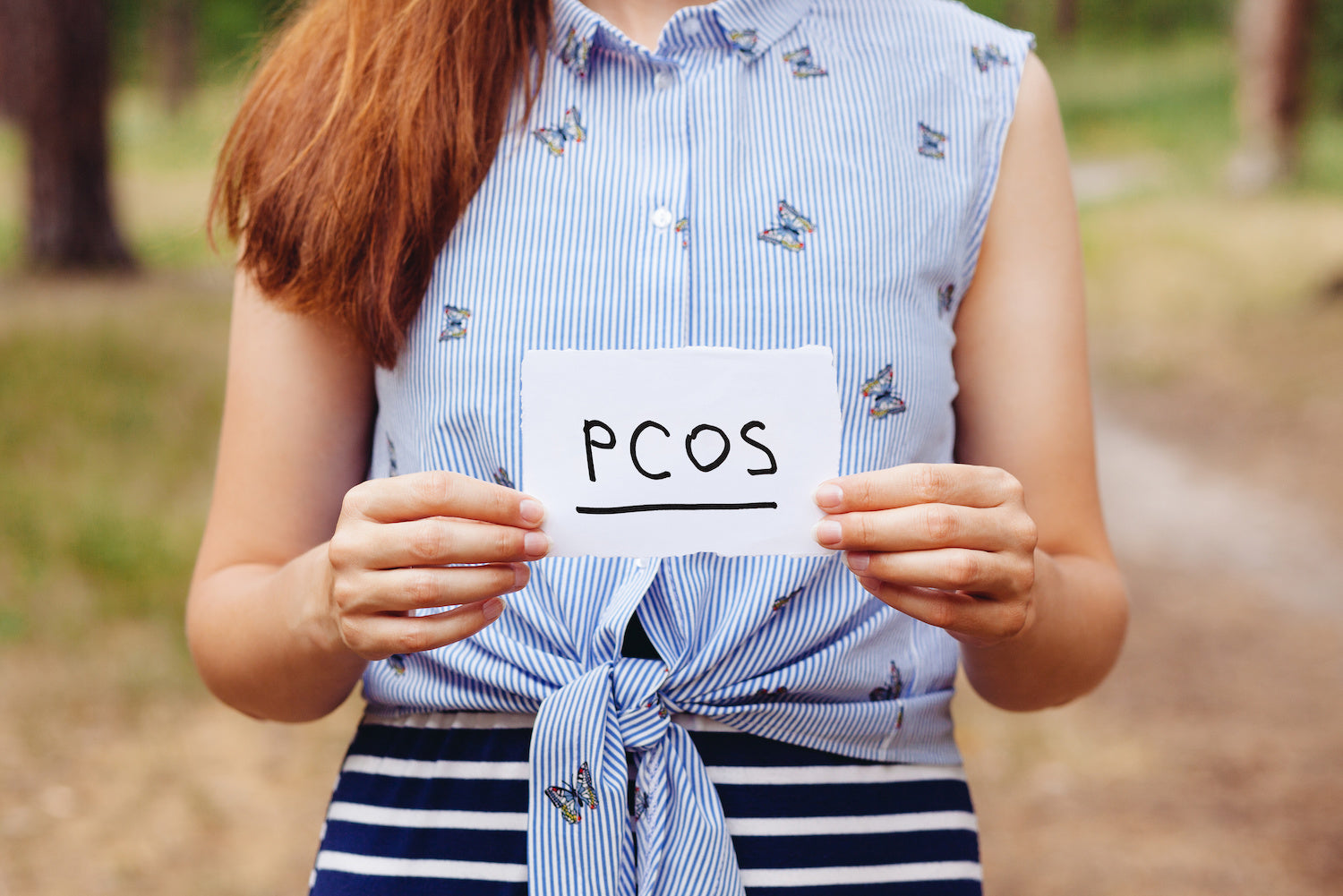
Destined for Breakouts: Can You Cure Genetic Acne?
At age 15, acne is embarrassing. At age 20, it’s mortifying. By the time you reach 25 or older, acne is the bane of your existence, the root of deep-seated insecurities, and the fear at the back of your mind:
Maybe you’ll never get rid of it. Maybe it’s just genetic.
It’s the worst-case scenario — acne that’s impossible to beat. How are you supposed to clear your breakouts if they’re written into your DNA? What’s the point of even trying?
Don’t fall into this black hole of hopelessness! Persistent acne can prey on your confidence, but it’s not the end.
Even if you think that your skin woes are genetic, Averr Aglow can help you improve your complexion and prevent new breakouts. Take advantage of our expertise, from incorporating the skin-positive botanicals in our Clear Skin Kit to tweaking a few lifestyle habits for a new, fresh-faced you!
Is Acne Hereditary?
Suspect that genetics are contributing to your breakouts? You’re probably right. Genetics are significant in the development of acne, from standard whiteheads to painful, adult-onset cysts.
If your family tree includes a history of acne, you’re far more likely to have acne yourself. You’re also more likely to develop blemishes earlier in life, get more breakouts overall, and have greater difficulty getting your acne under control.
One study went so far as to suggest that inherited factors may be 80% responsible for acne flare-ups. So the next time you’re glumly evaluating a new spot in the mirror, give a little mental shout-out to all your ancestors who helped make it possible.
How Genetics Determine Your Breakouts
Let’s make one thing clear, though: There’s a secret acne gene resigning you to a pimple-filled fate. Genetics contribute less to the actual breakouts themselves than to your overall risk of breakouts.
For example, you may inherit one or more of these tendencies :
- Overproduction of sebum, your skin’s natural oil.
- An overzealous immune response that causes you extra inflammation.
- A faster rate of skin cell turnover.
- Higher levels of acne-triggering androgen hormones like testosterone.
- Lower levels of androgen-suppressing hormones like estrogen.
On their own, these tendencies aren’t too bad. But in the right circumstances, they can feed into your acne breakouts.
These predispositions also explain why you can have dramatic acne despite clear-skinned parents and siblings. Family members may carry only one or two acne-contributing factors, while you end up with four or five. With so many things working against you, of course, your skin will struggle more than theirs!
Hormonal conditions like PCOS can also cluster in families. If your breakouts are tied to a deeper hormonal issue, genetics may still be playing a hand.
As the final cherry on top, genetics can stunt your acne resistance, allowing stubborn breakouts to persist into adulthood. So even after puberty, you fall victim to acne again and again.
READY TO KISS BREAKOUTS GOODBYE? FORGET CHEAP TEEN PRODUCTS. TREAT YOURSELF RIGHT WITH SKIN-NOURISHING PRODUCTS SPECIALLY FORMULATED FOR YOUR ADULT ACNE!
The Other 20%: Environmental Acne Causes
Of course, it’s not all genetics. Certain environmental or lifestyle factors can give your skin that final push from acne-prone to acne-covered.
Think about it: If you’re already living on the constant brink of breakouts, adding more acne triggers will only make your skin worse. Particularly factors such as :
- Stress
- Lack of sleep
- A diet high in sugar, carbs, or dairy
- Air pollution
Ultimately, breakouts are caused by a combination of hereditary and environmental factors.
It sounds terrible, but it’s good news. Why? Because it’s a lot easier to adjust your environment than your genetics. Avoiding environmental triggers can decrease the frequency and severity of breakouts, especially if paired with quality skincare.
How to Get Rid of Genetic Acne
Banishing genetic acne can seem like an uphill struggle, especially if you aren’t seeing any results. But it’s not as simple as grabbing the first “anti-acne” cleanser at Walgreens.
Because most genetic-fueled breakouts are a multi-pronged problem, you’ll need a multi-pronged solution that targets both hereditary and environmental factors.
3 Ways to Prevent Genetic Breakouts
First, try to identify and counteract any genetic predispositions that may be setting you up for acne.
- Balance your sebum: If your genes have gifted you with an oily complexion, start by balancing your oil production. The trick here is to provide your skin with adequate hydration (so it stops overcompensating). Skip the heavy, pore-clogging lotions for a naturally moisturizing product like our Flawless Nourishment Cream. It infuses skin with oil-balancing zinc and vitamin E from pumpkin seed oil and moisturizes deeply with soothing camellia.
- Remove dead skin cells: Many acne sufferers also have rapid skin cell turnover. To keep your complexion bright and your pores clear, add a little exfoliation to your routine. Stiff cloths and microbeads can tear the upper layers of your skin, so select a gentler option like our Radiant Cleansing Nectar, which is perfect for mild daily exfoliation. Applied with cotton pads, it softly sweeps away dead cells and impurities to reveal the glowing skin beneath. And for a real fresh-faced treat, add our Illuminating Essence Exfoliating Mask once or twice a week. It smooths your complexion with volcanic ash and silica for natural radiance.
- Settle your hormones: If your breakouts are due to high androgen levels or a hormonal imbalance, you can discuss hormone therapies and medications with your doctor. But these can have side effects and should be considered carefully. If you prefer a more holistic solution, lifestyle shifts may be enough to get your hormone levels under control.

4 Lifestyle Tips to Further Minimize Your Acne
Whether you’re trying to manage your hormones or become your best self, a few easy day-to-day tips can help your skin, happiness, and general health.
- Go green. Wherever possible, prioritize organic, chemical-free products that avoid hormone-disrupting ingredients. Treat yourself kindly with natural skincare, hair products, and even laundry detergent.
- De-stress. Decrease your anxiety to curb the tide of stress-produced hormones. Try relaxing activities like yoga, meditation, or a few extra hours of sleep.
- Clean up your diet. Oof, easier said than done. Little by little, wean yourself off of sugar, dairy, and refined carbs. You can even add foods that may help lower androgen hormones like testosterone.
- Detoxify your complexion. Do you live in a smoggy area? Is urban life choking up your skin? Pull out those environmental pollutants with a purifying product like our Clear Skin Elixir. Its overnight, long-wear formulation allows French pink clay to penetrate deep into your pores, pulling out dirt and toxins. So in the morning, you can greet the day feeling clean and rejuvenated.
Hereditary factors can put your complexion at a disadvantage, but genetic acne doesn’t have to be a life sentence. With some good habits and the right skincare, you can even the odds and finally achieve the clear skin you deserve!
What to Do Next? Try Averr Aglow’s Clear Skin Kit
Tired of feeling lost and confused about what you should do to get clear, smooth skin? Order the Clear Skin Kit.
The Clear Skin Kit contains products specially crafted with the perfect blend of natural ingredients that help soothe and calm red, irritated skin while also clearing up breakouts. If you struggle with sensitive acne/breakout-prone skin, hormonal acne, cystic acne, or rosacea, then you’ll be happy you found this complete routine.
Please understand, that results may vary, we’re not selling you a miracle product and would never try to position or state that you will get a true result in only a few days. In our clinical trials, most users found the most results at the 30-day and then the 56-day mark by sticking with our routine.
What is Averr Aglow®?
Averr means Truth. We have pioneered a revolutionary no-rinse cleansing routine specifically tailored to address problematic skin issues.
Hi, I’m Camille, founder of Averr Aglow, and I help adult women who are battling breakouts and acne get clear skin results like they have never seen before, even if nothing has worked for them in the past.
After battling breakouts for over 16 years, trying every skincare product under the sun, and visiting countless professionals like dermatologists, nutritionists, and hormonal doctors, I finally learned why nothing seemed to work on clearing up my skin, what truly causes breakouts and acne, and EXACTLY what to do to get clear skin results – and I want to help you do the same.
Let me help you! Read my full testimonial here.






